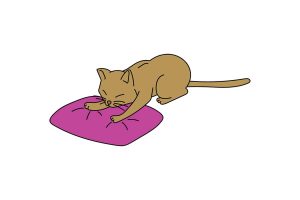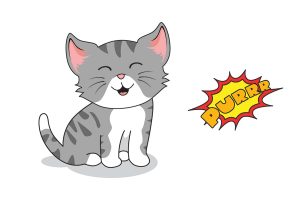Cats have their own version of TED Talks, and it seems like they’ve chosen us, their bewildered humans, as their captive audience. Whether your kitty’s the silent type or a chatterbox, there’s always a reason behind those adorable or sometimes confounding vocal cord exercises.
Cats can become overly talkative for all sorts of reasons, including:
- Seeking attention
- Expressing needs such as hunger or discomfort
- Responding to their environment
By the end of this guide, you’ll not only understand why your whiskered roommate is so talkative but also how to respond when they’re communicating with you.
Basics of Vocal Communication in Cats
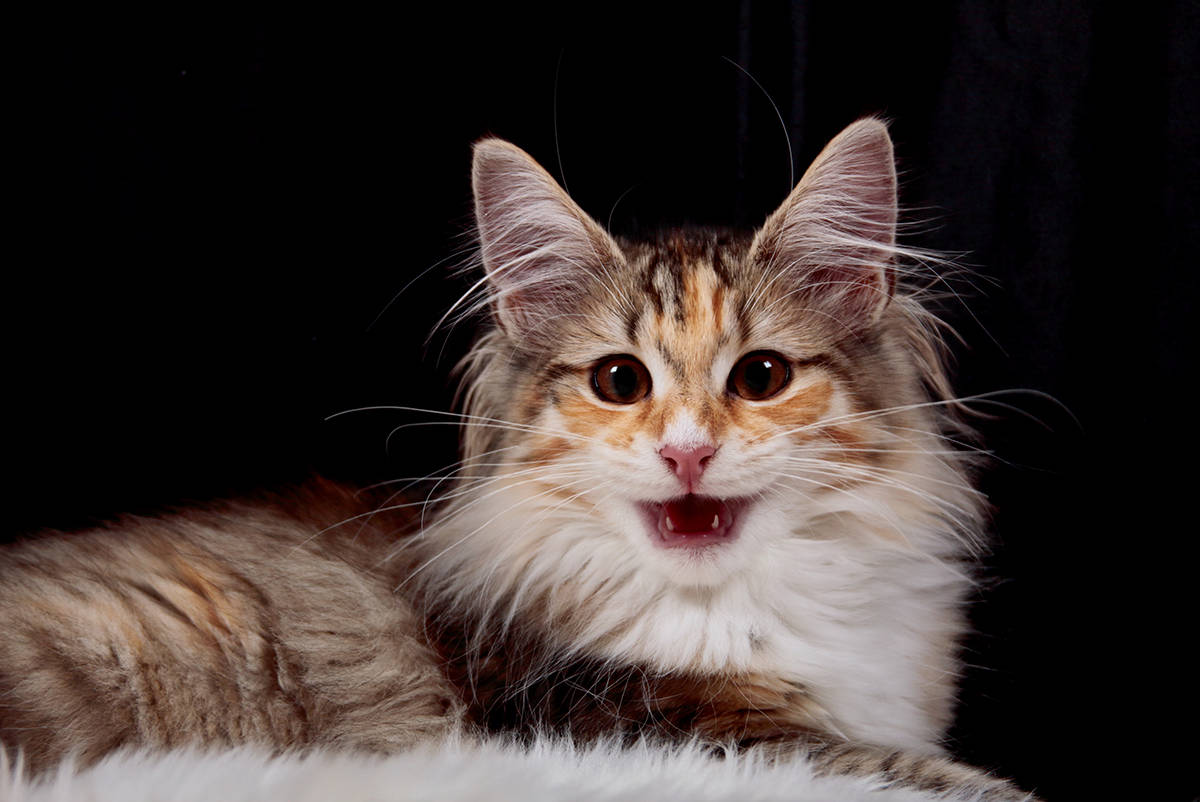
Ever watched your cat and thought, “If only they could talk”? Well, guess what? They’re already chatting up a storm, but in their own feline way. Deciphering cat communication is like learning a new language, one that doesn’t need words but has plenty of meows, purrs, and even the occasional hiss.
1. Meows
Kittens meow to their moms when they’re hungry, cold, or scared, but adult cats reserve their meows for talking to their beloved humans. If your cat meows, they might be saying “I’m hungry,” or “Let’s play!” In addition, the tone and frequency can tell you a lot about what they’re feeling.
2. Purrs
Purring is the cat equivalent of a smile—most of the time, it means they’re happy and content. Sometimes, they purr when they’re anxious, sick, or in pain, using it as a self-soothing mechanism.
3. Hisses and Growls
While purrs and meows can be cryptic, hisses and growls are unmistakably clear: “Back off!” Your cat is feeling threatened, scared, or annoyed, and it’s their way of saying, “I need space.”
Why Is My Cat So Talkative?
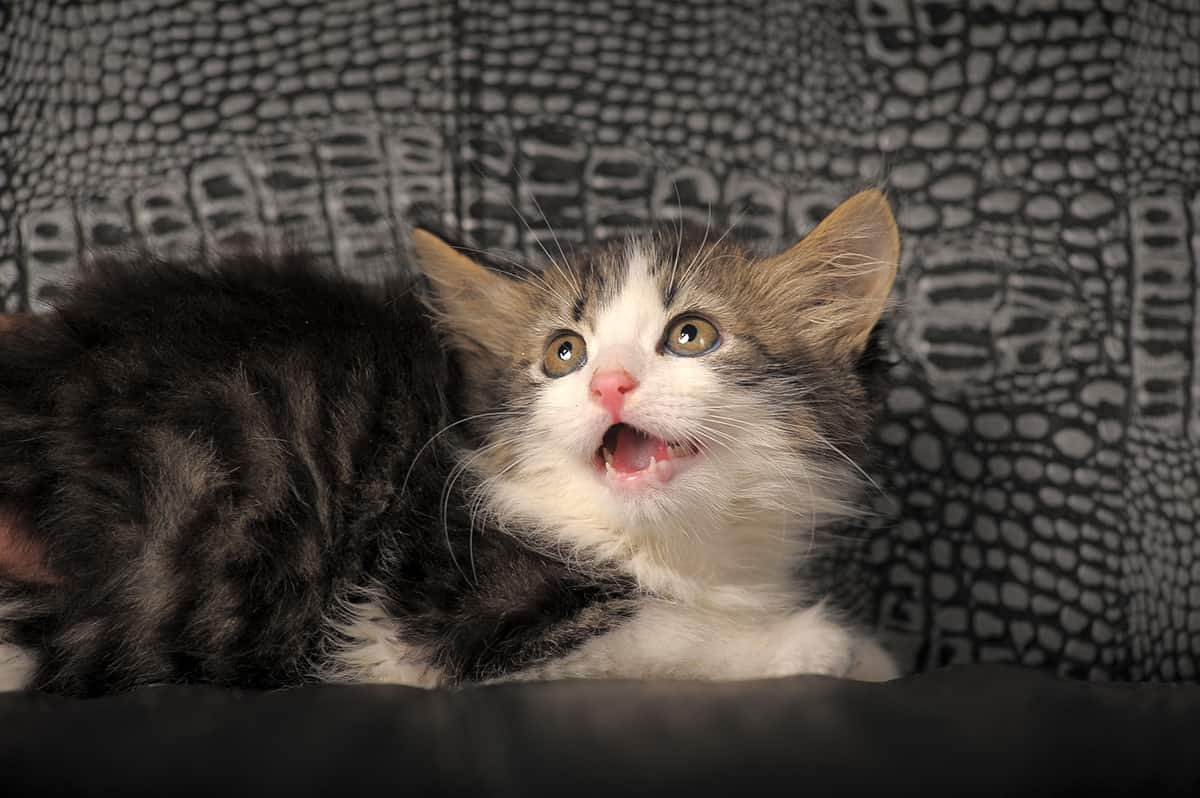
Ever feel like your cat’s on a mission to set the world record for most meows? You’re not alone. Some cats love to express themselves vocally, from dawn till dusk (and sometimes all night long).
1. Seeking Attention
First off, cats are smart. They quickly learn that meowing gets them what they want: your attention. Whether it’s a cuddle session, a playdate, or just a chat about their day, your cat knows that turning up the volume is a surefire way to make you listen.
2. Expressing Needs and Desires
Hunger, thirst, or the call of the great outdoors—your cat’s meows are often requests (or demands) for their basic needs. A meow at the food bowl means “More snacks, please,” while a meow at the door could be “Let’s explore the outdoors.” It’s their way of making sure their needs are on your daily to-do list.
3. Health-Related Issues
Sometimes, an increase in vocalization can be a sign that something’s up with your cat’s health. Pain, discomfort, or feeling under the weather can make your cat more vocal than usual. If your normally quiet kitty suddenly becomes a chatterbox, a check-up with the vet might be in order.
4. Breed-Specific Traits
Your cat’s breed might have a lot to do with their chattiness. Some breeds, like Siamese or Bengal cats, are known for being vocal. If you’ve got one of these talkative types, their meows are just part of their charm.
5. Environmental Factors
Changes in your cat’s environment can lead to more vocalizations. Moving to a new home, the arrival of a new pet or family member, or even rearranging the furniture can trigger your cat to express their opinions on the matter loudly and clearly.
6. Socialization and Bonding
Your cat’s talkativeness can also be a sign of their bond with you. Cats who feel close to their humans tend to be more vocal, sharing their thoughts and feelings. It’s like they’re including you in their inner circle, one meow at a time.
Responding to Your Cat’s Vocalizations
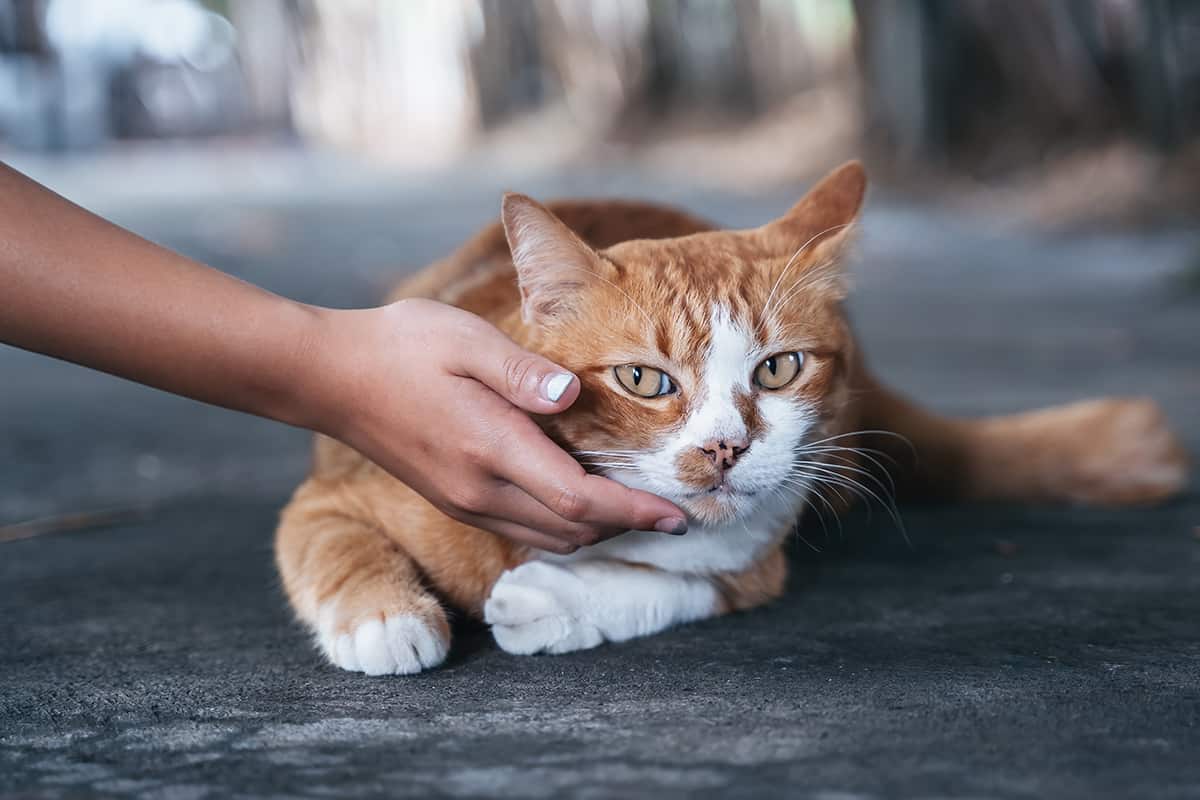
So, your cat’s been talking up a storm, and you’re wondering how to reply? Believe it or not, engaging in a two-way conversation with your furry orator can strengthen your bond and make you the best of pals.
1. Understanding the Message
First things first: listen to what your cat is trying to say. Is it mealtime meows, cuddle calls, or just a chat about their day? Paying attention to the timing, pitch, and volume of their vocalizations can give you clues about their needs or feelings.
2. Meeting Their Needs
Once you’ve got a handle on what your cat is communicating, it’s time to respond accordingly. If they’re hungry, a little snack can do the trick. If they’re asking for attention, a good petting session or playtime can satisfy their social needs. Your cat will appreciate your understanding and quick action.
3. Learning to Speak ‘Cat’
Believe it or not, you can talk back to your cat in a way they understand. Try mimicking their vocalizations or use a soft, soothing tone to communicate your presence and affection. Over time, you’ll find your own way of chatting that works for both of you.
4. Positive Reinforcement
When your cat communicates in a way that’s appropriate and not overly demanding, it’s a great opportunity to use positive reinforcement. Treats, pets, and verbal praise can go a long way in encouraging good communication habits.
It’s okay to set boundaries. If your cat’s nocturnal concerts are keeping you awake, try not to reinforce this behavior by responding during these hours.
FAQs
1. Why does my cat meow more at night?
Cats are naturally more active at dawn and dusk, so they might meow more at night to grab your attention or because they’re bored. Keeping them busy with toys during the day can help tire them out for a quieter night.
2. Is it possible to train my cat to be less vocal?
Absolutely! With patience, you can teach your cat to tone it down by rewarding them when they’re quiet and not responding to every meow. Consistency is key – and treats don’t hurt either!
3. How do I differentiate between normal vocalization and signs of distress?
Normal meows vary but are usually for attention or food. Signs of distress, however, include louder, more urgent meows, often accompanied by unusual behavior. If your cat’s vocalizing more than usual without a clear reason, a vet visit might be a good idea to rule out any health issues.



